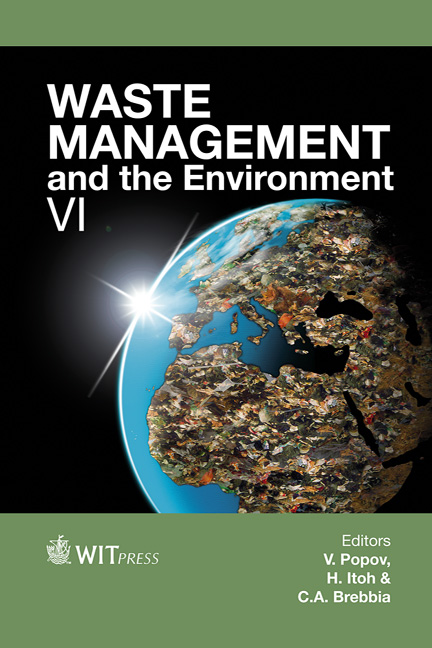Thermal Gasification Of Agro-industrial Residues
Price
Free (open access)
Transaction
Volume
163
Pages
8
Page Range
95 - 102
Published
2012
Size
362 kb
Paper DOI
10.2495/WM120091
Copyright
WIT Press
Author(s)
P. S. D. Brito, L. F. Rodrigues, L. Calado & A. S. Oliveira
Abstract
The farming and agro-industrial sector generates large amounts of organic residues which have a high energetic potential and in most cases are not recovered. Various technologies, including those for energy and agricultural applications, have been considered for the economical valorization of these residues. In this work, we show the results of a study on the potential use of some agro-industrial residues produced in the Portuguese Alto-Alentejo region, in particular, coffee husks, and forest and vineyards residues. The study was conducted in a pilot thermal gasification plant, installed at Portalegre’s Industrial Park based on the fluidized bed technology, with a processing capacity of 70 kg/h, and operating at around 800ºC. The gasification tests were performed continuously for several days, using different waste in order to optimize the heat value and composition of produced syngas. A comparative evaluation of the economic viability of the use of this waste as raw material for the commercial production of synthesis gas and synthetic city gas was made. The results achieved allow the conclusion that the waste biomasses studied show interesting features for use as syngas raw material. Keywords: biofuel, pilot plant, gasification, fluidized bed, syngas. 1 Introduction Bioenergy and biofuels are one of the most important alternatives to fuel production to minimize the continuous depletion of fossil fuel resources and the increasing concerns with environmental issues. Organic living matter, or biomass, in energy terms, is no more than a form of chemical storage of solar electromagnetic energy. When the bonds between carbon, hydrogen and oxygen
Keywords
biofuel, pilot plant, gasification, fluidized bed, syngas.





